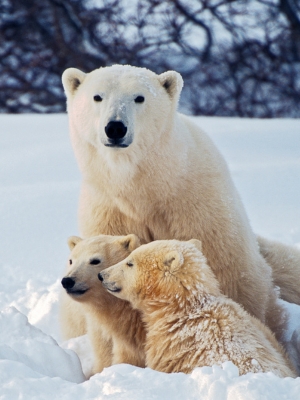In recent weeks, ten primates have died from a Tuberculosis outbreak at the Tsimbazaza Zoo and Botanical Park in Madagascar (PBZT), including eight black-and-white ruffed lemurs, one sifaka, and one fossa. The disease has never been observed to occur in these species in the wild.
According to the International Union for the Conservation of Nature (IUCN), ruffed lemurs and sifaka are Critically Endangered and fossa are Vulnerable to extinction. Of all the IUCN threatened species categories, Critically Endangered and Vulnerable animals are in the top three categories closest to extinction of the nine IUCN categories.
The Zoo Remains Open and Members of the Public Are In Close Contact with Animals
Despite these deadly outbreaks, the zoo remains open. According to a leading Malagasy primatologist, Jonah Ratsimbazafy, the zoo should close immediately to protect both the hundreds of other susceptible animals kept in captivity there and the throngs of people who visit them each day.
Investigators in this case blame zoo staff and visitors for the origin of the outbreak. Tuberculosis can be spread from humans to many primate species, including a case documented by the CDC in 2019, where an illegally wild-caught pet ring-tailed lemur was confirmed to be infected. Zoo visitors regularly post photos on social media showing them holding and feeding lemurs, within contact close enough to spread Tuberculosis and other diseases potentially fatal to primates.
Until the zoo is closed, staff and animals could transmit Tuberculosis to visitors. According to Ratsimbazafy, “Containing the spread of Tuberculosis at PBZT will likely require animal euthanasia.” He does not recommend that the zoo captures any more primates from the wild to replenish the animals lost from their zoo collections. A sad end indeed for the very primates the zoo claims to be “saving” from extinction.
Wildlife Close Encounters Are Also Common in the U.S.
Problematically, facilities like the PBZT are popular throughout the rest of the world—including the United States. According to Born Free USA’s 2021 report on the trade of primates in the U.S., Public Danger, Private Pain, around 46 facilities (e.g., wildlife safaris, zoos, animal rental agencies, and exotic petting zoos) offer 57 different close contact encounter experiences with primates across the country. These up-close experiences include animal encounters (where people can pet, hold, feed, and/or touch the primates), animal shows, photo opportunities, and open-contact walk-throughs.
Disease Spread Is Dangerous to Animals and Humans Alike
Disease spread occurs both ways; nonhuman primates can transmit more than 200 known diseases to humans, many of which can be fatal, including Herpes B, Ebola, and SARS. In addition to Tuberculosis cases, documented cases of humans transmitting diseases to primates include Herpes virus, intestinal parasites, and measles outbreaks.
Close contact experiences with nonhuman primates is a multifaceted issue. In addition to the potential for disease spread, there is risk for injury or death due to primates’ often-overlooked aggressive nature and unpredictability. Every way you look at it, interactions with primates in captivity is unsafe.
Help us keep all primate species alive and in the wild by speaking out against facilities that keep primates to exploit them for close contact experiences!
Read and share our report, Public Danger, Private Pain, here.
Keep Wildlife in the Wild,
Devan

 Dear Reader,
Dear Reader,